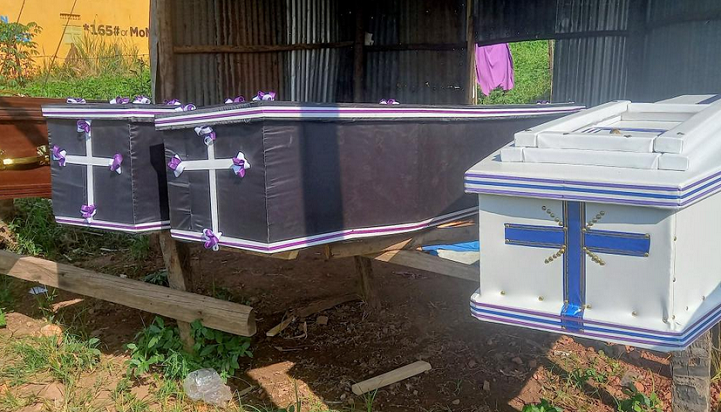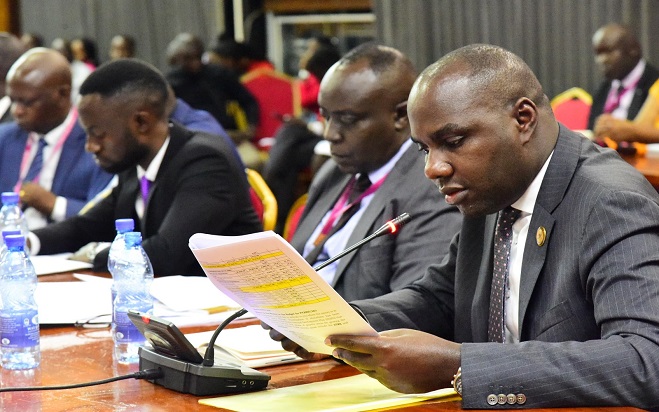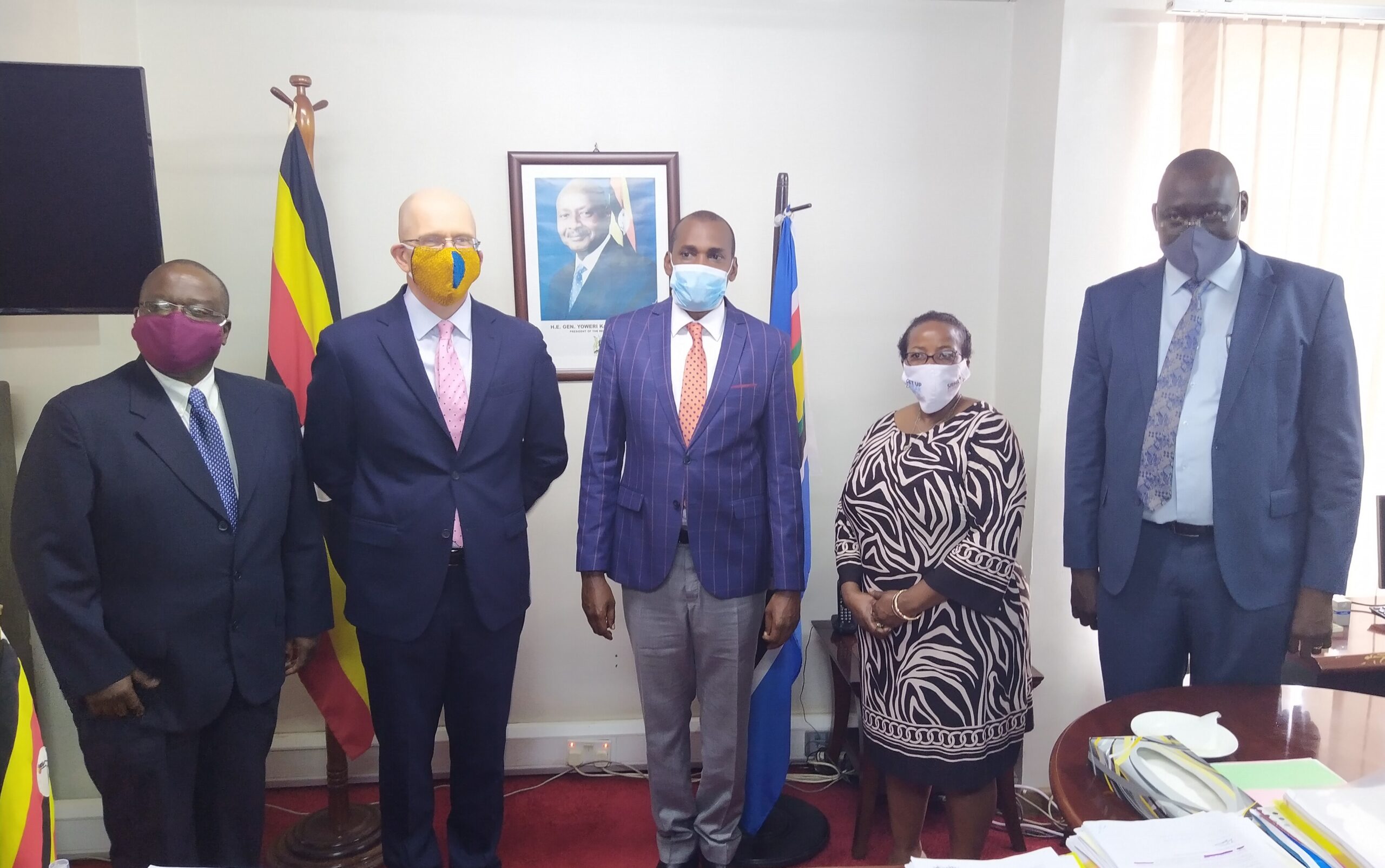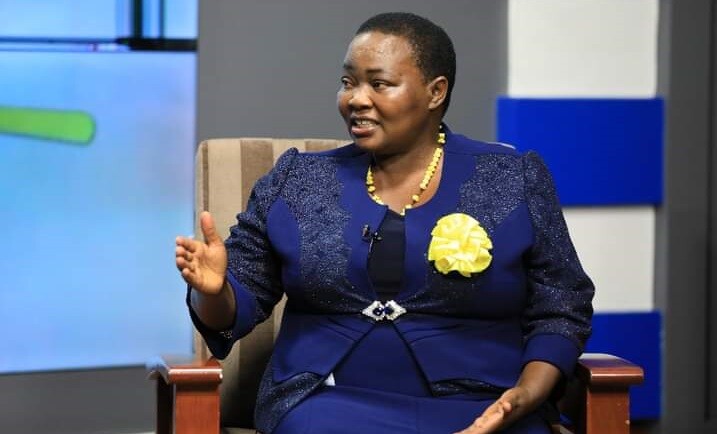At St. Mary’s Hospital Lacor in Gulu, the scene is a poignant reminder of the intersection between life and death. Close to the hospital’s entrance, approximately 40 meters away, youths aged 20 to 33 can be seen crafting coffins, targeting both the hospital and the broader market.
The area to the left of the road is lined with decorated coffins, while the nearby mortuary holds deceased bodies awaiting evacuation. Relatives, in their grief, are seen scrambling to afford well-crafted wooden coffins to honor their loved ones. Patrick Okello, a local carpenter, explains, “Tall people make more money. We use more materials to build their coffins.”
Okello, a resident of Laroo-Pece Division, holds a level one certificate in carpentry and joinery, which he earned 10 years ago. Since then, he has sustained his livelihood by producing coffins. He reflects on his choice of trade, stating, “Burial has become luxurious, and I would see some of the rich people who died have their coffins imported to Uganda.”
Today, he sells about two coffins to people who come to pick up their loved ones from Lacor Hospital. Each coffin goes for between 250,000 to 2 million Shillings, the market he exploits every day. Within the same premises, as recently as July 13, 2024, another carpenter, Stephen Torach was busy making beds though he would receive fewer customers than those dealing in coffins.
Unlike the coffin dealers who get an average of 1.5 million Shillings each day, Torach noted that his average daily income only stands at 250,000 Shillings. But on a good day, he would sell at least a bed valued at 500,000 Shillings and a door at 250,000 Shillings” Everyone here can make coffins, yes, it’s a professional service but you need a strong heart to take on this business”
Every dead body would mean, a coffin is sold to Lacor hospital, which loses an average of 1,000 patients annually. Okello has even mastered the period where the dead would pay him more, such a period is characterized by extreme coldness where he predicts a very rare chance of survival once admitted. Between May to August each year, he takes a higher bet to prepare more coffins because of the higher rate of deaths. His sales double as each dead body would mean, a coffin is sold off.
The 33-year-old says that there is a good market for tall people because once they die, their coffins are long and cost more materials. He generates 2 million Shillings from each coffin. “I am not saying our people from South Sudan should die here but that is where I get more money from because the majority are tall and it takes more material to make their coffins,” he added.
Juxtaposing the height of this reporter, which is about two feet, Okello says” Like you when you die, your coffin will be long and you will need the one of 2 million” as he drives the reporter through this humorous interview. Okello notes that his other market comes from wealthy families, adding that those who die from such families do not negotiate for coffins because of the valuable assets the deceased has left behind.
Between July 2023 and July 2024, Lacor Hospital registered a total of 1,387 deaths of patients, 724 deaths occurred in children and 663 in adults according to 2022/2023 hospital performance reports. The coffins for children generate 250, 000 while for adults, generate between 1 million to 2 million shillings depending on the size of the body and the family.
The Distress of Milking from the Dead
While Okello maximizes profits from the dead, the emotional breakdown of relatives who seek his services overburdens him with distress. Although he seeks counseling after every three days of hard work, Okello has occasionally found it difficult to heal from trading in corpses.
“Sometimes it’s someone you know who died and the relatives have come to you, it’s a tough business but we need money to support our families” Okello explained. Such a day paints his heart with both joy and sorrow as he often flags off coffins from his workshop ” I keep thinking how I would be buried each day someone is buried.”
While he is troubled by the number of deaths, Okello has acquired land for himself, built a hostel facility at Gulu University, and set up other business ventures within Gulu City to diversify his income.
The Next Neighbor of the Deceased
On the evening of September 17, 2024, Johnson Kidega, dressed in black shorts, a white T-shirt, and a cross around his neck, stood alone at the gate of the mortuary at St. Mary’s Hospital Lacor in Gulu. As he celebrated his 44th birthday, Kidega recalled that this date also marked the anniversary of his mother’s passing in 2012 from blood cancer, a memory that was particularly poignant given his current role.
Kidega, who has worked as a casual laborer and mortuary attendant at the hospital for the past five years, prepares bodies for their final journey from the hospital. “My mother loved her cross and would sleep by it. If she were here today, we would recite the cross together on my birthday, but now I do it for her memory, knowing she is alive there,” Kidega reflects.
Each day, Kidega handles between 2 to 3 bodies, treating them and placing them in deep fridges as they await burial. “It’s a lot of sacrifices, but when my mother died, I washed her myself before nurses took her away. I realized how important it is to love even the dead and prepare them for another life,” he observes.
He also assists the deceased’s relatives, guiding them through the procedures and arranging for the body’s release. He describes his work as a significant sacrifice, akin to preparing a person from birth to their final resting place. “This work is a sacrifice because we start preparing a person on the day of their birth. I also went through a similar situation of death when I lost my mother. I help them as I am helping fellow human beings; they have only changed their titles from living to dead, but they are spiritually alive, and we must keep them well on the last day,” Kidega says.
Despite his dedication, Kidega struggles with work-related trauma. He has sought counseling services numerous times each week to cope. “What helps so much is to go for counseling after work, but most times I mask my heart and face to work like a doctor attending to a patient,” he shares.
Monica Akello, a Clinical Psychologist and Lecturer at the East African Institute of Management Science, notes that many people ignore their mental wellness at work, which can impact efficiency and lead to mental health challenges. She emphasizes that individuals in stressful jobs often need counseling to manage their mental health. “Some people have strong coping mechanisms for certain environments, but others require counseling,” Akello explains.
She recounts an experience with a young girl working in a mortuary who had no other option for employment, highlighting the potential dangers of working in such environments without a choice. “There are some people who will come with their stress and add to yours; that’s why I say if you can’t cope easily, then seek help from others,” Akello advises.
Dr. Emintone Odong Ayella, the Hospital’s Medical Director, addresses the issue of relatives abandoning patients at advanced ages in hospitals, which places an extra burden on medical facilities. He criticizes the practice of mobilizing resources only after death for burial expenses. “Hundreds of radio announcements are made for deaths, but none for mobilizing resources for the person who is still alive. Why do people eat so much at funerals? Why must the dead pay for that?” Dr. Odong questions.
–URN





